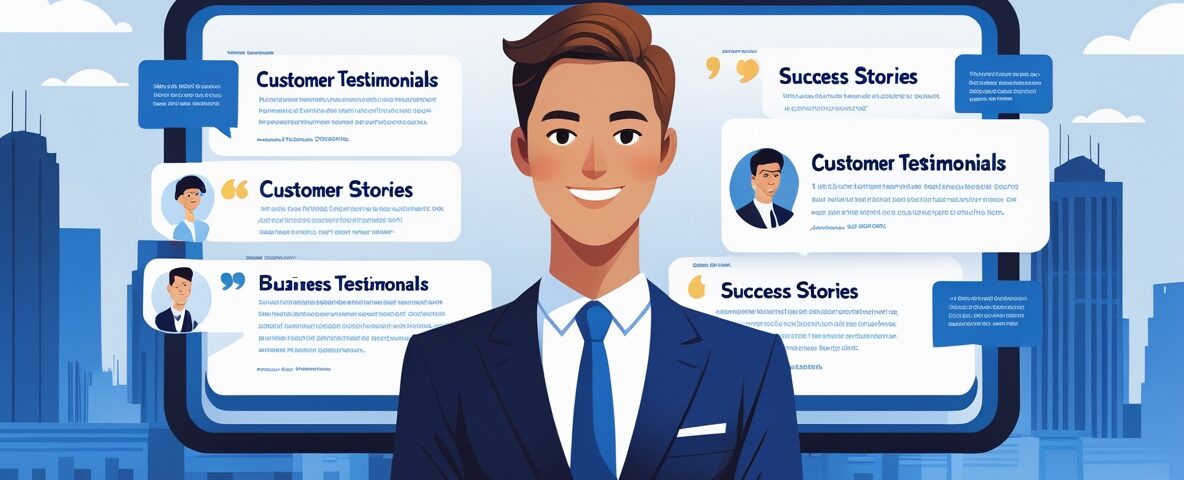
The Evolution of B2B Lead Gen Through Influencer Marketing in Singapore
September 2, 2025
AI Content Generation for Singapore’s Education Sector: Tool for Growth or Shortcut to Mediocrity?
September 3, 2025As a B2B company, lead generation is key to your success. But with so much competition out there, it can be hard to stand out from the crowd and convince potential customers to choose your products or services over others. That’s where customer testimonials and case studies come in. By sharing stories of satisfied customers, you can build trust, establish credibility, and ultimately drive more leads and conversions. In this blog post, we’ll explore the power of customer testimonials and case studies in B2B lead generation.

First, let’s define what we mean by customer testimonials and case studies. Customer testimonials are statements or comments from satisfied customers about their experience with your product or service. These can be written, recorded on video, or shared on social media. Case studies, on the other hand, are in-depth examinations of how your product or service solved a problem or met a specific need for a customer. They often include data and metrics to support the success story.
So why are customer testimonials and case studies so effective for B2B lead generation? Here are a few reasons:
1. They build trust: Customers are more likely to trust the opinion of other customers than they are to trust marketing messages from companies. By sharing real stories from satisfied customers, you can build trust and credibility with potential customers.
2. They provide social proof: When potential customers see that others have had success with your product or service, they’re more likely to believe that they can achieve success too. This provides valuable social proof that can help convince prospects to become customers.

3. They showcase your expertise: By sharing case studies that highlight how your product or service solved a specific problem, you can showcase your expertise and demonstrate your ability to provide value to customers.
4. They address objections: When potential customers are hesitant to make a purchase, they often have specific objections or concerns. By sharing customer testimonials and case studies, you can address these objections and show how your product or service has successfully addressed similar concerns for other customers.

So how can you effectively use customer testimonials and case studies in your B2B lead generation efforts? Here are a few tips:
1. Make them easy to find: Make sure customer testimonials and case studies are prominently displayed on your website, social media channels, and other marketing materials.
2. Use them strategically: Think about where in the customer journey these materials would be most effective. For example, a case study might be more effective for prospects who are further along in the decision-making process, while a customer testimonial might be more effective for those who are just starting to research solutions.
3. Keep them up to date: Make sure to regularly update your customer testimonials and case studies to reflect the most recent successes and achievements of your customers.
In conclusion, customer testimonials and case studies are powerful tools for B2B lead generation. By leveraging the stories of satisfied customers, you can build trust, establish credibility, and ultimately drive more leads and conversions. So start gathering those success stories and incorporating them into your marketing efforts today!
Check this out: https://www.ismartcom.com/


